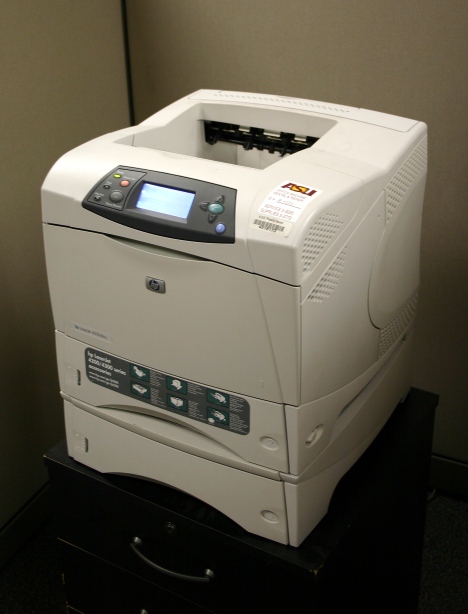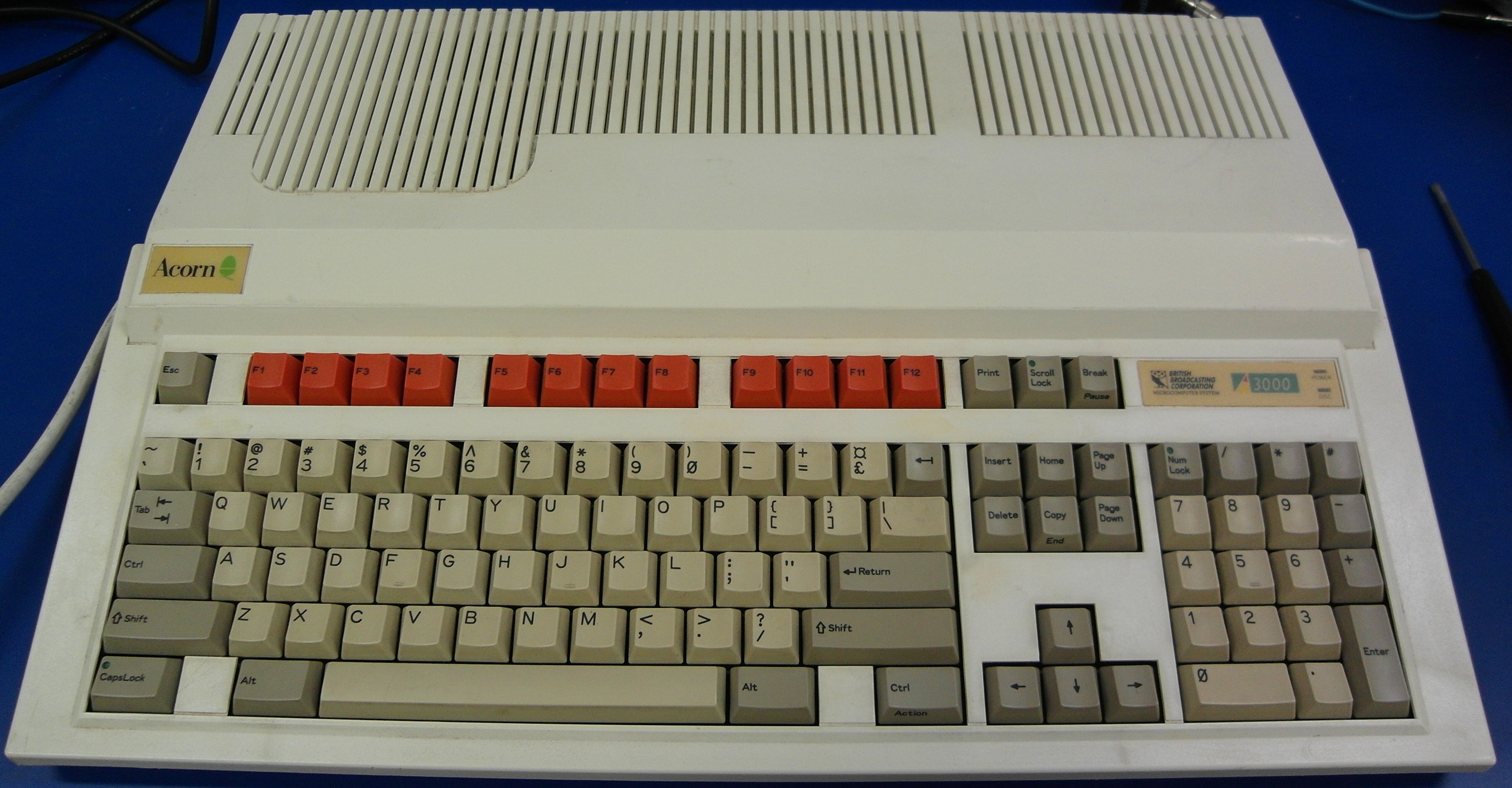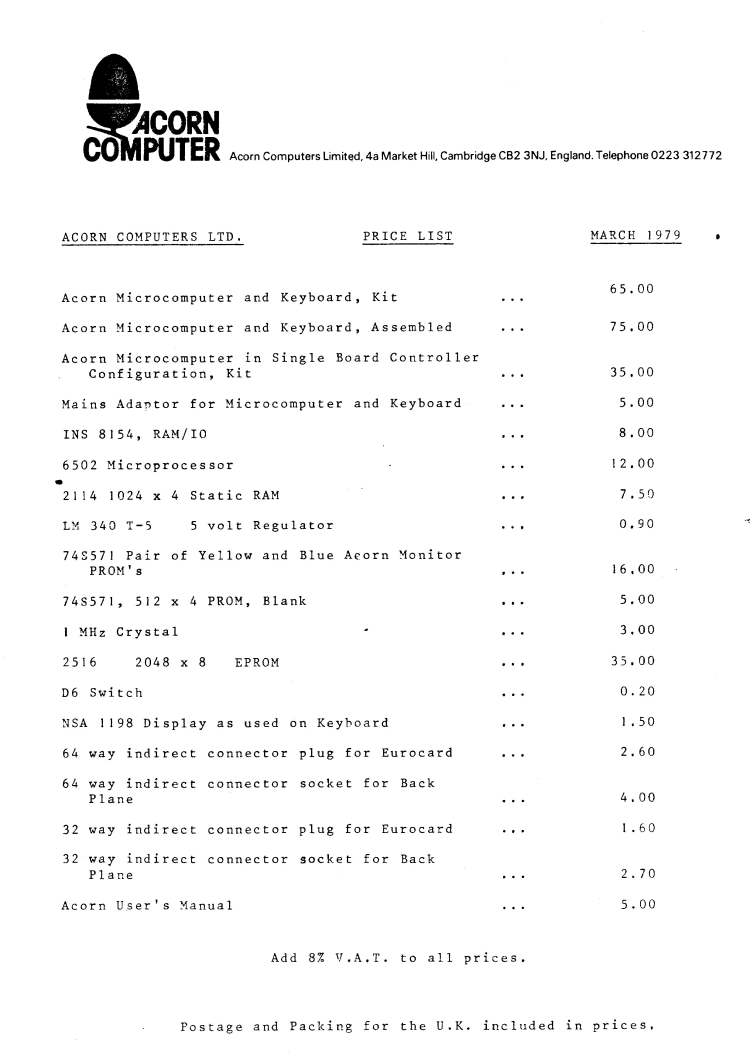|
Publish-It!
Timeworks Publisher was a desktop publishing (DTP) program produced by GST Software in the United Kingdom. It is notable as the first affordable DTP program for the IBM PC. In appearance and operation, it was a Ventura Publisher clone, but it was possible to run it on a computer without a hard disk. Versions Timeworks Desktop Publisher Timeworks Publisher 1 for Atari TOS relied on the GDOS software components, which were available from Atari but were often distributed with applications that required them. GDOS provided TOS/GEM with a standardized method for installing printer drivers and additional fonts, although these were limited to bitmapped fonts in all but the later releases. GDOS had a reputation for being difficult to configure, used a lot of system resources and was fairly buggy, meaning that Timeworks could struggle to run on systems without a hard disk and less than 2 MB of memory - but it was possible, and for many users Timeworks was an inexpensive introduction ... [...More Info...] [...Related Items...] OR: [Wikipedia] [Google] [Baidu] |
GST Software
GST was a group of computer companies based in Cambridge, England, founded by Jeff Fenton in June 1979. The company worked with Atari, Sinclair Research, Torch Computers, Acorn Computers, Monotype Corporation and Kwik-Fit, amongst others. The group included: * GST Computer Systems: the original name of the company. * GST Professional Services: a software consultancy that was sold and became OTIB A.T. * GST Software Products: produced retail software, most notably Timeworks Publisher. * GST Training Centre: a class based software training provider in Cambridgeshire, UK. * Electric Software: a games software label, producing titles for home computers such as the Commodore 64, ZX Spectrum, and MSX-compatible models in the early 1980s. GST Computer Systems started as a contract software development company. In 1983, it became involved with Sinclair Research, producing the 68K/OS operating system (later rejected by Sinclair) and development software for the Sinclai ... [...More Info...] [...Related Items...] OR: [Wikipedia] [Google] [Baidu] |
GST Computer Systems
GST was a group of computer companies based in Cambridge, England, founded by Jeff Fenton in June 1979. The company worked with Atari, Sinclair Research, Torch Computers, Acorn Computers, Monotype Corporation and Kwik-Fit, amongst others. The group included: * GST Computer Systems: the original name of the company. * GST Professional Services: a software consultancy that was sold and became OTIB A.T. * GST Software Products: produced retail software, most notably Timeworks Publisher. * GST Training Centre: a class based software training provider in Cambridgeshire, UK. * Electric Software: a games software label, producing titles for home computers such as the Commodore 64, ZX Spectrum, and MSX-compatible models in the early 1980s. GST Computer Systems started as a contract software development company. In 1983, it became involved with Sinclair Research, producing the 68K/OS operating system (later rejected by Sinclair) and development software for the Sinclair QL. In 1 ... [...More Info...] [...Related Items...] OR: [Wikipedia] [Google] [Baidu] |
Microsoft Windows
Windows is a group of several proprietary graphical operating system families developed and marketed by Microsoft. Each family caters to a certain sector of the computing industry. For example, Windows NT for consumers, Windows Server for servers, and Windows IoT for embedded systems. Defunct Windows families include Windows 9x, Windows Mobile, and Windows Phone. The first version of Windows was released on November 20, 1985, as a graphical operating system shell for MS-DOS in response to the growing interest in graphical user interfaces (GUIs). Windows is the most popular desktop operating system in the world, with 75% market share , according to StatCounter. However, Windows is not the most used operating system when including both mobile and desktop OSes, due to Android's massive growth. , the most recent version of Windows is Windows 11 for consumer PCs and tablets, Windows 11 Enterprise for corporations, and Windows Server 2022 for servers. Genealogy By marketing ... [...More Info...] [...Related Items...] OR: [Wikipedia] [Google] [Baidu] |
BBC Master
The BBC Master is a home computer released by Acorn Computers in early 1986. It was designed and built for the BBC, British Broadcasting Corporation (BBC) and was the successor to the BBC Micro, BBC Micro Model B. The Master 128 remained in production until 1993. Design The Master series featured several improvements on preceding BBC Micro models. The systems had RAM as standard, alleviating the shortage of available RAM which had amongst other things discouraged use of the best graphics modes in the original design. The Master 128 and its variants had two cartridge slots mounted behind the new numerical keypad, these employing sockets that provided a superset of the Acorn Electron Acorn Electron#Acorn Plus 1, Plus 1 cartridge interface capabilities, supporting the use of physically compatible Electron cartridges, but also supporting enhanced electrical characteristics for some of the cartridge connector pins. Rather than the MOS Technology 6502 Central processing unit, micropro ... [...More Info...] [...Related Items...] OR: [Wikipedia] [Google] [Baidu] |
Laser Printing
Laser printing is an electrostatic digital printing process. It produces high-quality text and graphics (and moderate-quality photographs) by repeatedly passing a laser beam back and forth over a negatively-charged cylinder called a "drum" to define a differentially-charged image. The drum then selectively collects electrically-charged powdered ink (toner), and transfers the image to paper, which is then heated to permanently fuse the text, imagery, or both, to the paper. As with digital photocopiers, laser printers employ a xerographic printing process. Laser printing differs from traditional xerography as implemented in analog photocopiers in that in the latter, the image is formed by reflecting light off an existing document onto the exposed drum. Invented at Xerox PARC in the 1970s, laser printers were introduced for the office and then home markets in subsequent years by IBM, Canon, Xerox, Apple, Hewlett-Packard and many others. Over the decades, quality and speed have in ... [...More Info...] [...Related Items...] OR: [Wikipedia] [Google] [Baidu] |
Hewlett-Packard
The Hewlett-Packard Company, commonly shortened to Hewlett-Packard ( ) or HP, was an American multinational information technology company headquartered in Palo Alto, California. HP developed and provided a wide variety of hardware components, as well as software and related services to consumers, small and medium-sized businesses ( SMBs), and large enterprises, including customers in the government, health, and education sectors. The company was founded in a one-car garage in Palo Alto by Bill Hewlett and David Packard in 1939, and initially produced a line of electronic test and measurement equipment. The HP Garage at 367 Addison Avenue is now designated an official California Historical Landmark, and is marked with a plaque calling it the "Birthplace of 'Silicon Valley'". The company won its first big contract in 1938 to provide test and measurement instruments for Walt Disney's production of the animated film ''Fantasia'', which allowed Hewlett and Packard to formally esta ... [...More Info...] [...Related Items...] OR: [Wikipedia] [Google] [Baidu] |
Computer Multitasking
In computing, multitasking is the concurrent execution of multiple tasks (also known as processes) over a certain period of time. New tasks can interrupt already started ones before they finish, instead of waiting for them to end. As a result, a computer executes segments of multiple tasks in an interleaved manner, while the tasks share common processing resources such as central processing units (CPUs) and main memory. Multitasking automatically interrupts the running program, saving its state (partial results, memory contents and computer register contents) and loading the saved state of another program and transferring control to it. This " context switch" may be initiated at fixed time intervals (pre-emptive multitasking), or the running program may be coded to signal to the supervisory software when it can be interrupted (cooperative multitasking). Multitasking does not require parallel execution of multiple tasks at exactly the same time; instead, it allows more than o ... [...More Info...] [...Related Items...] OR: [Wikipedia] [Google] [Baidu] |
Anti-aliased
Anti-aliasing may refer to any of a number of techniques to combat the problems of aliasing in a sampled signal such as a digital image or digital audio recording. Specific topics in anti-aliasing include: * Anti-aliasing filter, a filter used before a signal sampler, to restrict the bandwidth of a signal such as in audio applications * Manual anti aliasing, artistic technique done in pixel art graphics to smooth transitions between shapes, to soften lines or to blur edges. * Spatial anti-aliasing, the technique of minimizing aliasing when representing a high-resolution image at a lower resolution ** Fast approximate anti-aliasing, an anti-aliasing algorithm created by Timothy Lottes under Nvidia. May also be referred to as Fast Sample Anti-aliasing (FSAA). ** Multisample anti-aliasing, a type of spatial anti-aliasing method ** Supersampling, a type of spatial anti-aliasing method * Temporal anti-aliasing, techniques to reduce or remove the effects of temporal aliasing in moving i ... [...More Info...] [...Related Items...] OR: [Wikipedia] [Google] [Baidu] |
RISC OS
RISC OS is a computer operating system originally designed by Acorn Computers Ltd in Cambridge, England. First released in 1987, it was designed to run on the ARM chipset, which Acorn had designed concurrently for use in its new line of Archimedes personal computers. RISC OS takes its name from the reduced instruction set computer (RISC) architecture it supports. Between 1987 and 1998, RISC OS was included in every ARM-based Acorn computer model, including the Acorn Archimedes line, Acorn's R line (with RISC iX as a dual-boot option), RiscPC, A7000, and prototype models such as the Acorn NewsPad and Phoebe computer. A version of the OS, named NCOS, was used in Oracle Corporation's Network Computer and compatible systems. After the break-up of Acorn in 1998, development of the OS was forked and continued separately by several companies, including , Pace Micro Technology, and Castle Technology. Since then, it has been bundled with several ARM-based desktop computers such as t ... [...More Info...] [...Related Items...] OR: [Wikipedia] [Google] [Baidu] |
Acorn Archimedes
Acorn Archimedes is a family of personal computers designed by Acorn Computers of Cambridge, Cambridge, England. The systems are based on Acorn's own ARM architecture processors and the proprietary operating systems Arthur and RISC OS. The first models were introduced in 1987, and systems in the Archimedes family were sold until the mid-1990s. ARM's Reduced instruction set computer, RISC design, a 32-bit CPU (using 26-bit addressing), running at 8 Hertz, MHz, was stated as achieving 4.5+ Million instructions per second, MIPS, which provided a significant upgrade from 8-bit home computers, such as Acorn's previous machines. Claims of being the fastest micro in the world and running at 18 MIPS were also made during tests. Two of the first models—the A305 and A310—were given the BBC branding, with BBC Worldwide, BBC Enterprises regarding the machines as "a continuing part of the original computer literacy project". Dissatisfaction with the branding arrangement was ... [...More Info...] [...Related Items...] OR: [Wikipedia] [Google] [Baidu] |
Acorn Computers
Acorn Computers Ltd. was a British computer company established in Cambridge, England, in 1978. The company produced a number of computers which were especially popular in the United Kingdom, UK, including the Acorn Electron and the Acorn Archimedes. Acorn's computer dominated the UK educational computer market during the 1980s. Though the company was acquired and largely dismantled in early 1999, with various activities being dispersed amongst new and established companies, its legacy includes the development of reduced instruction set computing (RISC) personal computers. One of its operating systems, , continues to be developed by RISC OS Open. Some activities established by Acorn lived on: technology developed by Arm (company), Arm, created by Acorn as a joint venture with Apple, Inc., Apple and VLSI Technology, VLSI in 1990, is dominant in the mobile phone and personal digital assistant (PDA) microprocessor market. Acorn is sometimes referred to as the "British Apple" and ... [...More Info...] [...Related Items...] OR: [Wikipedia] [Google] [Baidu] |
1st Word
1st Word is a word processor program for the Atari ST developed by GST Computer Systems and published in 1985. It was given away with all ST systems from December 1985 for the next two years. Although it was relatively well received, it was a very simple program, lacking most power features and was very slow when working in large documents. In spite of any limitations, it's wide availability made the program's .DOC file format became a ''de facto'' standard for the platform and was widely supported by other programs like desktop publishing systems. 1st Word Plus was a greatly improved version released by GST when the bundling deal ended in 1987. This addressed performance issues and added dozens of features that made it one of the faster and most feature-packed word processors on the platform. Among its more notable additions were a spell checker, mail merge, and support for footnotes and similar long-document editing features. This became one of the best selling programs on th ... [...More Info...] [...Related Items...] OR: [Wikipedia] [Google] [Baidu] |




